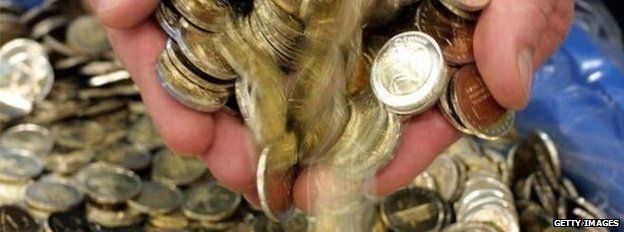Greece needs to seize ‘last opportunity’ for deal
Greece needs to seize a “last opportunity” to reach a deal with its creditors, the head of the Eurogroup, Jeroen Dijsselbloem has said.
He was speaking after a meeting of European finance ministers that ended with no agreement on Greece’s debt.
Mr Dijsselbloem called on Greece to submit “credible” proposals in the coming days.
To help tackle the crisis, an emergency summit of leaders from Eurozone nations has been called for next Monday.
Mr Dijsselbloem highlighted that “very little time remains” as Greece’s current bailout programme runs out this month.
“It is still possible to find an agreement and extend the current programme before the end of the month, but the ball is clearly in the Greek court to seize that last opportunity,” Mr Dijsselbloem said.
The Greek finance minister, Yanis Varoufakis, said his nation had presented a “comprehensive” proposal and that disagreement only existed over spending equivalent to 0.5% of Greek GDP, which he says does not constitute a “dangerous impasse”.
He highlighted that Greece has already made a “gigantic adjustment” over the last five years and rejected any measures that would “jack-up” taxes and reduce benefits further.
And he warned that negotiations were “dangerously close to a state of mind that accepts an accident”.
Looming deadline
Greece has less than two weeks remaining to strike a deal with its creditors or face defaulting on an existing €1.6bn (£1.1bn) loan repayment due to the IMF.
The country has already rolled a €300m payment into those due on 30 June.
If it fails to make the payment, it risks having to leave the eurozone and possibly also the EU.
But the European Commission, the IMF and the European Central Bank (ECB) are unwilling to unlock bailout funds until Greece agrees to reforms.
They want Greece to implement a series of economic changes in areas such as pensions, VAT and on the budget surplus before releasing €7.2bn of funds, which have been delayed since February.


Greece – deal or no deal?
- Option 1: No deal: Greece defaults on IMF and ECB repayments; ECB pulls plug on emergency bank assistance leading to run on Greek banks, capital controls and potential Grexit
- Option 2: Greece agrees reform deal with creditors at last minute and avoids default, staying in euro
- Option 3: No deal reached but both sides paper over cracks and Greece stays in euro for now
[‘source – bbc.com”]
